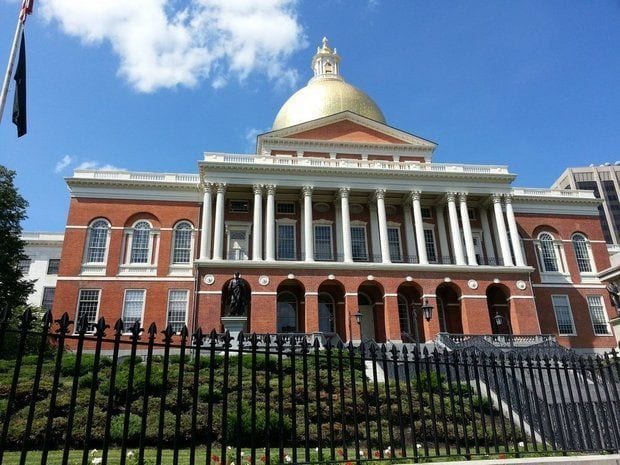New education alliance, same funding crisis
Report highlights persistent inequalities for students of color

A report released by a coalition of education organizations on Monday highlights stark disparities in educational opportunity for Boston’s black and Latino students, compared with their white peers.
The study, titled “Number One for Some: Opportunity and Achievement in Massachusetts” was produced by the newly formed Massachusetts Education Equity Partnership, an alliance of almost 20 education advocacy organizations.
“The report highlights the critical disparities facing black and Latino students and the dramatically different experience than that of their higher-income, mostly white, counterparts,” said Amanda Fernandez, founder and chief executive of Latinos for Education, who called the partnership the first of its kind.
Old issue
But the data presented in the study is not new, and many of the conclusions reached are similar to those advanced by education groups that have been advocating for increased education funding over the last year. The new coalition’s entrance into the statewide education funding debate appears to mark a new phase of organizing by individuals and entities that have traditionally advocated more narrowly for corporate education reforms.
The new coalition includes organizations led by Teach for America affiliates Educators for Excellence and Latinos for Education, and groups funded by the Gates and Walton Foundations — major funders in the failed 2016 Ballot Question 2, which sought to lift the statewide cap on charter school expansion in Massachusetts.
The groups’ entrance into the school-funding debate comes after a 2017 memo, commissioned by the Walton Education Coalition that called on Massachusetts charter supporters to better engage in the grassroots organizing opponents of Question 2 used to defeat the measure.
“If the opposition is on the ground, they must be matched on the ground, by equally trustworthy validators,” read the March 2017 report.
While corporate education reform groups have been largely silent since 2016, this year marked a pitched battle by a coalition of education advocates as well as teachers unions to improve the state’s Chapter 70 funding formula to reflect the increased costs of educating English language learners, students with special needs and low-income students.
Those costs, a legislative Foundation Budget Review Commission determined in a 2015 report, were underestimated when the Legislature enacted its landmark 1993 Education Reform Act, which has dictated state education spending for the last 25 years.
Charlotte Kelly, the executive director of the Massachusetts Education Justice Alliance — a coalition of grassroots organizations that has advocated for increased school funding — said the newly-formed Massachusetts Education Equity Partnership has not invited MEJA into its fold.
“We have students, teachers unions, parents and teachers all working together,” Kelly said of her organization. “We’re looking forward to building a public education justice movement that keeps public funds in public schools.”
While the NAACP Boston Branch opposed Question 2, President Tanisha Sullivan said she welcomes the groups’ advocacy on inequality and school funding.
“The data that is in the report is not new,” she said. “We have examined this data and monitored this data for several years and have put forth concrete recommendations for how these issues should be addressed.”
The NAACP Boston Branch signed off on the report, but Sullivan said the organization has not agreed to be a part of the Massachusetts Education Equity Partnership coalition.
Sullivan says that while increased funding is necessary, providing targeted resources that focus on the academic and social needs of black and Latino students and increasing teacher diversity are also needed to achieve education equity.
At the local level, Sullivan said Boston Public Schools should do a more thorough analysis of its own policies, including the current “home-based” student assignment system, which reorganized school assignment areas in order to give students with traditionally less access to good schools the opportunity to enroll at a quality institution closer to home.
“There we have an example of a policy that has been proven to work against the interests of black and brown students in the district by not providing them with access to the same types of schools that white students have access to,” she said.
A recent study by the Boston Area Research Initiative found that while commutes shortened under the home-based system, the policy does not provide students with access to good schools, largely because “the geographic distribution of quality schools is itself inequitable,” given the lack of Tier 1 schools in Roxbury, Mattapan and Dorchester.
Acknowledging 25 years of education progress, Fernandez said there is more work to be done. “We can’t just ignore this,” she said, “… and we have to continue to shine a light on this issue.”
Groups signed onto the Massachusetts Education Equity Partnership include Amplify Latinx, Mass Parents United, Stand for Children, Educators for Excellence, and Teach Plus Massachusetts.
Yawu Miller contributed to this story.


![Banner [Virtual] Art Gallery](https://baystatebanner.com/wp-content/uploads/2024/04/Cagen-Luse_Men-at-store-e1713991226112-150x150.jpg)



